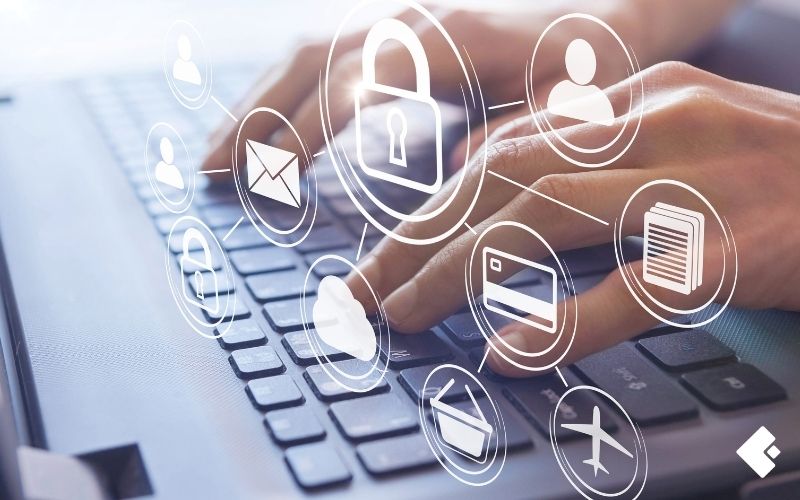In today’s digital age, safeguarding sensitive information and maintaining confidentiality and privacy are paramount concerns for legal practices. Investigative firms like Frasco® Integrated Research play a crucial role in securely obtaining evidence for litigation and protecting sensitive information during the evidence gathering process.
The Importance of Protecting Sensitive Information
Legal professionals handle vast amounts of sensitive data, including personal information, financial records, and confidential case details. Much of that information is shared with the investigators they hire. Those investigators also supplement that sensitive data with additional information gathered during the investigation and evidence gathering process. Ensuring that sensitive information is always protected and secure is not just a necessity but a responsibility for legal practices and the investigators they hire.
Securely Obtain, Storing and Disseminating Investigative Evidence
Investigative firms with a focus on data security and privacy operate with strict protocols to ensure that all evidence is collected lawfully, stored securely, and delivered confidentially to legal teams. Each method of evidence gathering comes with its own risks and safeguards. Below are a few investigative tools used by legal professionals and how responsible investigation firms protect the sensitive data they generate:
- Surveillance and Remote Monitoring
When conducting surveillance, whether in-person or remotely, investigators follow a chain-of-custody protocol to maintain the integrity of the footage. High-resolution cameras are timestamped and often GPS-tagged to authenticate the recordings. All video data is uploaded via secure, encrypted channels to internal case management systems. Investigators are trained to avoid collecting footage in private spaces to comply with privacy laws, and access to surveillance files is restricted to case-specific personnel.
Remote camera systems, such as ROC units, are installed in discreet, legal locations and programmed to transmit encrypted footage in real time or at the conclusion of the investigation. The video feeds are stored on secure servers with audit trails to monitor any internal access or downloads, ensuring accountability throughout the process.
- Background and Social Media Investigations
Background investigations often require access to public and private databases, proprietary tools, and licensed platforms. Investigators use secure virtual environments to conduct searches and compile reports on criminal history, civil litigation, financial data, professional licenses, and more. All findings are logged into a centralized case file with tiered access, and sensitive identifiers such as Social Security numbers or financial account information are masked or redacted where appropriate.
Social media investigations involve digital evidence capture tools that preserve metadata and ensure admissibility in court. When taking screenshots or archiving profiles, investigators document the date, time, and method of collection. These files are encrypted at rest and in transit, and sharing is limited to credentialed legal contacts.
- Geo-Targeted and Automated Data Collection
Advanced tools like geo-fencing and license plate readers (LPRs) are deployed to capture real-time data within specific time and location parameters. These tools are only used under strict legal guidelines, and any data captured is evaluated for relevance before being incorporated into a case. Information obtained through geo-targeted tools is encrypted immediately upon collection and stored in secure, access-controlled environments. Investigators follow data minimization practices, ensuring only relevant data is retained and unrelated data is purged.
- Data Security and Evidence Handling Protocols
Regardless of the method of evidence collection, investigative firms employ end-to-end security protocols to protect sensitive data. This includes:
- Secure file transfer protocols (SFTP) for transmitting files to law firms.
- Encrypted case management systems with multi-factor authentication.
- Regular cybersecurity audits to detect vulnerabilities.
- Documented chain-of-custody logs to track who accessed what data and when.
Benefits of Partnering with Frasco® Integrated Research
- Expertise and Experience: With over sixty years of experience, we provide reliable, court-admissible findings adhering to legal and ethical standards.
- Customized Solutions: Tailored services meet the specific needs of legal practices, combining various areas to produce case-specific solutions.
- Enhanced Decision-Making: Comprehensive investigations provide the information needed for informed decisions, reducing risks.
- Proactive Client Information Protection: Stay ahead of cyber threats with our proactive measures to secure sensitive information and prevent breaches.
Conclusion
Protecting sensitive information and maintaining trust are essential for legal practices. Frasco® Integrated Research offers services that secure evidence for litigation and protect client information, providing valuable support for legal professionals. Choose us as your investigative partner to ensure your practice is secure against threats.
Contact Us Today
Frasco® Integrated Research delivers ethical and efficient solutions tailored to your needs. Have questions or want to discuss your investigative needs further? Schedule a call with one of our experts today to find the answers you’re looking for.
Disclaimer: This blog post is for informational purposes only and should not be considered legal advice. Please consult your general counsel for specific legal guidance. Frasco investigators are licensed, and our operations comply with US industry, federal, state, and local laws.

